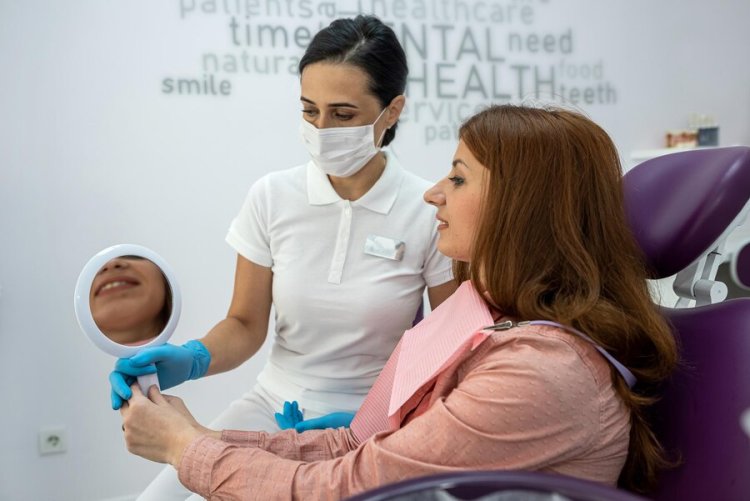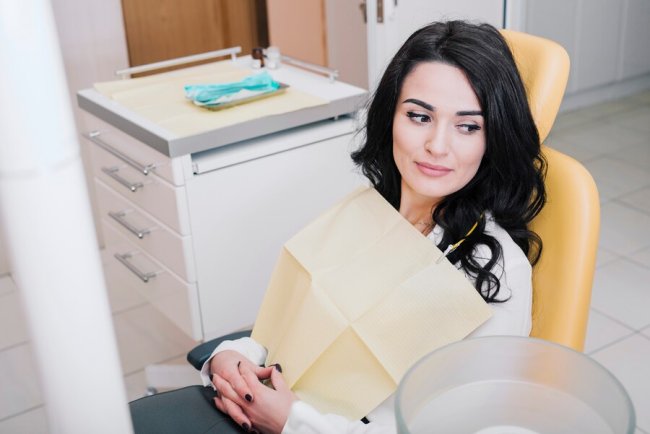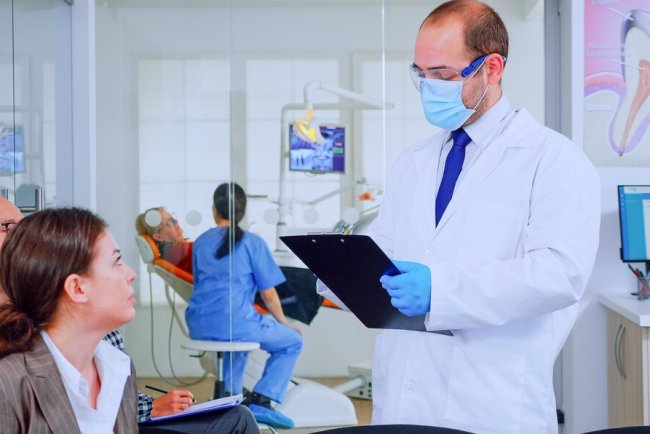Can You Go to the Dentist While Pregnant?
Yes, you can go to the dentist while pregnant. Regular check-ups and safe procedures like X-rays, fillings, and cleanings are crucial for maintaining oral health.

Maintaining good oral health is crucial during pregnancy, as it affects both the mother and the developing baby. Dental care during pregnancy is not only safe but essential for managing oral health and preventing complications. This comprehensive guide explores the importance of dental care during pregnancy, the safety of various dental procedures, and how to manage oral health while expecting.
The Importance of Dental Care During Pregnancy
Pregnancy can lead to changes in oral health due to hormonal fluctuations. Increased levels of progesterone and estrogen can affect the gums, leading to conditions like pregnancy gingivitis. Proper dental care is crucial for preventing and managing these changes to ensure both maternal and fetal health.
Pregnancy gingivitis is characterized by swollen, red, and bleeding gums. If left untreated, it can progress to more severe periodontal disease. Regular dental check-ups and cleanings can help manage these symptoms and prevent complications. Additionally, maintaining good oral hygiene practices at home, such as brushing and flossing regularly, is essential.
Safe Dental Procedures During Pregnancy
Many common dental procedures are safe to undergo during pregnancy. However, it's important to inform your dentist about your pregnancy to ensure that appropriate precautions are taken. Here's an overview of various dental treatments and their safety during pregnancy:
Routine Cleanings and Check-ups
Routine dental cleanings and check-ups are recommended throughout pregnancy. These visits allow your dentist to monitor your oral health, remove plaque and tartar buildup, and address any potential issues before they become serious. Regular cleanings can help prevent pregnancy gingivitis and other dental problems.
X-Rays
Dental X-rays are generally considered safe during pregnancy, especially when precautions are taken. Modern X-ray equipment uses minimal radiation, and protective measures such as lead aprons are employed to shield the abdomen and thyroid. If X-rays are necessary, they are typically performed with careful consideration of the stage of pregnancy and the potential risks.
Fillings and Crowns
Dental fillings and crowns can be safely performed during pregnancy. These procedures are essential for treating cavities and restoring damaged teeth. Dentists use materials that are safe and compatible with pregnancy, and local anesthesia is often used to minimize discomfort.
Extractions
Tooth extractions may be necessary if there is severe decay or infection. Extractions are generally safe during pregnancy, but the timing of the procedure may be considered. Non-emergency extractions are often postponed until the second trimester when the risk of complications is lower. Your dentist will discuss the best approach based on your specific situation.
Root Canals
Root canal treatments are typically safe during pregnancy. This procedure is performed to treat infections or damage within the tooth's pulp. While the procedure itself is safe, your dentist will consider the stage of pregnancy and any potential risks before proceeding.
Gum Treatments
If you experience gum issues such as severe gingivitis or periodontitis, your dentist may recommend specialized treatments. These treatments are generally safe during pregnancy and can help manage and prevent more severe complications.
Managing Oral Health While Pregnant
In addition to regular dental visits, managing oral health at home is crucial during pregnancy. Here are some tips for maintaining good oral hygiene:
Brush and Floss Regularly
Brushing your teeth twice a day with fluoride toothpaste and flossing daily helps remove plaque and prevent gum disease. Maintaining a consistent oral hygiene routine is especially important during pregnancy to prevent complications such as pregnancy gingivitis.
Use Fluoride Toothpaste
Fluoride toothpaste helps strengthen tooth enamel and protect against cavities. Using fluoride toothpaste is a safe and effective way to maintain oral health during pregnancy.
Rinse with a Mild Mouthwash
Using a mild, alcohol-free mouthwash can help reduce plaque and freshen your breath. Rinsing with mouthwash can be a beneficial addition to your oral hygiene routine during pregnancy.
Avoid Sugary Foods and Drinks
Limiting your intake of sugary foods and drinks helps prevent tooth decay. A balanced diet rich in fruits, vegetables, and whole grains supports both your oral health and overall well-being.
Stay Hydrated
Drinking plenty of water helps keep your mouth hydrated and supports overall health. Water also helps rinse away food particles and bacteria, reducing the risk of oral health issues.
Address Morning Sickness
If you experience morning sickness, it's important to manage the effects on your oral health. Rinse your mouth with water or a fluoride mouthwash after vomiting to help neutralize stomach acid and protect your teeth.
FAQs
Is it safe to go to the dentist while pregnant?
Yes, it is safe to go to the dentist while pregnant. Regular dental visits are important for maintaining good oral health and managing any potential issues. Inform your dentist about your pregnancy so they can take appropriate precautions.
Can I have dental X-rays during pregnancy?
Dental X-rays are generally considered safe during pregnancy, especially when protective measures are used. Modern X-ray equipment uses minimal radiation, and lead aprons help shield the abdomen and thyroid. If X-rays are necessary, your dentist will assess the risks and benefits based on your specific situation.
Are dental fillings and crowns safe during pregnancy?
Yes, dental fillings and crowns are safe to undergo during pregnancy. These procedures are essential for treating cavities and restoring damaged teeth. Local anesthesia is often used to ensure comfort during the procedure.
Can I have a tooth extraction while pregnant?
Tooth extractions are generally safe during pregnancy. Non-emergency extractions may be postponed until the second trimester when the risk of complications is lower. Your dentist will determine the best timing and approach based on your needs.
Is a root canal safe during pregnancy?
Root canal treatments are typically safe during pregnancy. This procedure addresses infections or damage within the tooth's pulp. Your dentist will consider the stage of pregnancy and any potential risks before proceeding with the treatment.
What should I do if I experience gum issues during pregnancy?
If you experience gum issues such as swelling or bleeding, it's important to see your dentist for evaluation and treatment. Gum issues, such as pregnancy gingivitis, can be managed with proper dental care and oral hygiene practices.
How can I manage morning sickness and protect my teeth?
If you experience morning sickness, rinse your mouth with water or a fluoride mouthwash after vomiting to neutralize stomach acid and protect your teeth. Maintaining a good oral hygiene routine is essential for managing the effects of morning sickness on your dental health.
What oral hygiene practices are recommended during pregnancy?
During pregnancy, it is recommended to brush your teeth twice a day with fluoride toothpaste, floss daily, use a mild mouthwash, and maintain a balanced diet. Limiting sugary foods and drinks and staying hydrated also supports oral health.
Can pregnancy affect my oral health?
Yes, pregnancy can affect your oral health due to hormonal changes. Increased levels of progesterone and estrogen can lead to gum issues, such as pregnancy gingivitis. Regular dental visits and good oral hygiene practices are important for managing these changes.
Should I inform my dentist about my pregnancy?
Yes, you should inform your dentist about your pregnancy. This allows them to take appropriate precautions and provide the best care tailored to your needs during this time.
Maintaining oral health during pregnancy is vital for both your well-being and the health of your baby. Regular dental check-ups, safe dental procedures, and diligent oral hygiene practices can help manage and prevent complications. By staying informed and proactive, you can ensure a healthy smile throughout your pregnancy.
What's Your Reaction?




















